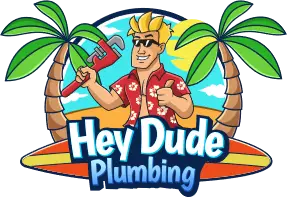Maintaining Your Plumbing System: A Step-by-Step Guide to DIY Plumbing
Plumbing is an essential part of every home, but it’s also one of the systems that often gets taken for granted. However, regular maintenance of your pipes and fixtures can help keep your home’s plumbing system functioning smoothly, extend its lifespan, and prevent costly repairs. If you’re handy and looking to save some money, there are plenty of simple DIY plumbing tips that you can follow to maintain your pipes and fixtures.
Regular maintenance of your pipes and fixtures is important to ensure the longevity and efficiency of your plumbing system. Neglecting maintenance can lead to leaks, clogs, and other problems that can cause water damage and increase your water bill. Fortunately, with a few basic tools, you can perform routine maintenance tasks yourself. In this article, we’ll provide an overview of DIY plumbing tips that you can follow to maintain your pipes and fixtures.
Basic Tools for DIY Plumbing
Before you get started with any DIY plumbing project, it’s essential to have the right tools on hand. Here are some of the basic tools you’ll need:
- Plunger: A plunger is a simple, inexpensive tool that can be used to clear clogs in your sinks, toilets, and showers.
- Adjustable wrench: An adjustable wrench is a versatile tool that you can use to tighten or loosen nuts and bolts.
- Plumbers tape: Plumbers tape is a type of waterproof tape that you can use to seal threaded connections and prevent leaks.
- Drain snake: A drain snake is a long, flexible rod that you can use to clear clogs in your pipes.
Tips for Maintaining Pipes
Maintaining your pipes is important to prevent leaks and clogs, and to ensure that your plumbing system is functioning efficiently. Here are some tips to help you maintain your pipes:
- Identifying leaks: To identify leaks, look for signs of water damage, such as water stains on your ceilings or walls, and listen for the sound of running water when all taps are turned off.
- Clearing clogs: To clear clogs, use a plunger or a drain snake. If you’re using a drain snake, insert it into the drain and turn it clockwise until you feel resistance. Then, turn it counterclockwise to loosen the clog and remove it.
- Replacing washers: If you’re experiencing leaks from a faucet, it may be due to a worn-out washer. To replace a washer, turn off the water supply to the faucet, remove the handle, and replace the washer.
- Insulating pipes: Insulating your pipes can help prevent frozen pipes during the winter and reduce heat loss. You can purchase foam pipe insulation from your local hardware store.
Maintenance for Fixtures
Fixtures, such as faucets, toilets, and showerheads, are important components of your plumbing system, and routine maintenance can help keep them functioning efficiently. Here are some tips for maintaining your fixtures:
- Fixing leaky faucets: If you have a leaky faucet, it may be due to a worn-out washer. To fix a leaky faucet, turn off the water supply to the faucet, remove the handle, and replace the washer.
- Replacing toilet flappers: If your toilet is running, it may be due to a worn-out flapper. To replace a flapper, turn off the water supply to the toilet, flush the toilet to empty the tank, and then remove the flapper and replace it with a new one.
- Cleaning showerheads: To clean your showerhead, fill a plastic bag with white vinegar and attach it to the showerhead with a rubber band. Let it soak for an hour, then remove the bag and run the water for a few minutes to remove any buildup.
- Replacing showerheads: If your showerhead is outdated or not functioning properly, you can easily replace it with a new one. Turn off the water supply to the showerhead, remove the old showerhead, and install the new one by following the manufacturer’s instructions.
By following these simple and effective tips for DIY plumbing, you can maintain your pipes and fixtures and keep your home’s plumbing system functioning smoothly. Regular maintenance can help prevent leaks, clogs, and other problems, and extend the lifespan of your plumbing system. Remember to always turn off the water supply before performing any plumbing maintenance, and if you’re unsure about a task, it’s best to consult a professional plumber.
